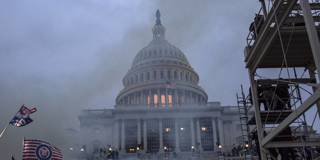OnPoint Subscriber Exclusive
The Big Picture brings together a range of PS commentaries to give readers a comprehensive understanding of topics in the news – and the deeper issues driving the news. The Big Question features concise contributor analysis and predictions on timely topics.

America, One Year On
As the United States marks the first anniversary of the attack on the Capitol by supporters of then-President Donald Trump, many questions about the health of the country’s constitutional order remain unanswered. The most important is whether the American right can evolve in a way that does not threaten democracy itself.
In this Big Picture, Michael Lind of the University of Texas at Austin argues that focusing on the Capitol riots and Trump’s attempt to overturn the 2020 presidential election ignores the real threat to American democracy – namely, the longstanding lack of popular trust in conventional politicians whose policies have repeatedly failed. But J. Bradford DeLong of the University of California, Berkeley, thinks the main danger is that today’s Republican Party has embraced a strategy of exclusion and fear. And the journalist Elizabeth Drew, noting the sizable percentage of Americans who now regard violence as a legitimate means to achieve political ends, says that the future of the US democratic system remains up for grabs.
But who will emerge victorious? Jan-Werner Mueller of Princeton University thinks the assault on the Capitol partly reflected a mindset that views democracy, along with women and nature, as the exclusive property of white men. Likewise, American University’s Cynthia Miller-Idriss argues that mitigating the growing danger posed by far-right groups requires policymakers to deepen their understanding of how these movements recruit and mobilize supporters. But James K. Galbraith of the University of Texas at Austin shows why the Democratic Party can take comfort in broader US demographic trends, and argues that Republican voter-suppression efforts are unlikely to work for long.
Lastly, Princeton’s Harold James regards the assault on the Capitol as a symptom of an intra-civilizational clash of cultures that is rendering US politics – and politics elsewhere – increasingly dysfunctional, and blames outdated nostrums for the derangement of public debate.